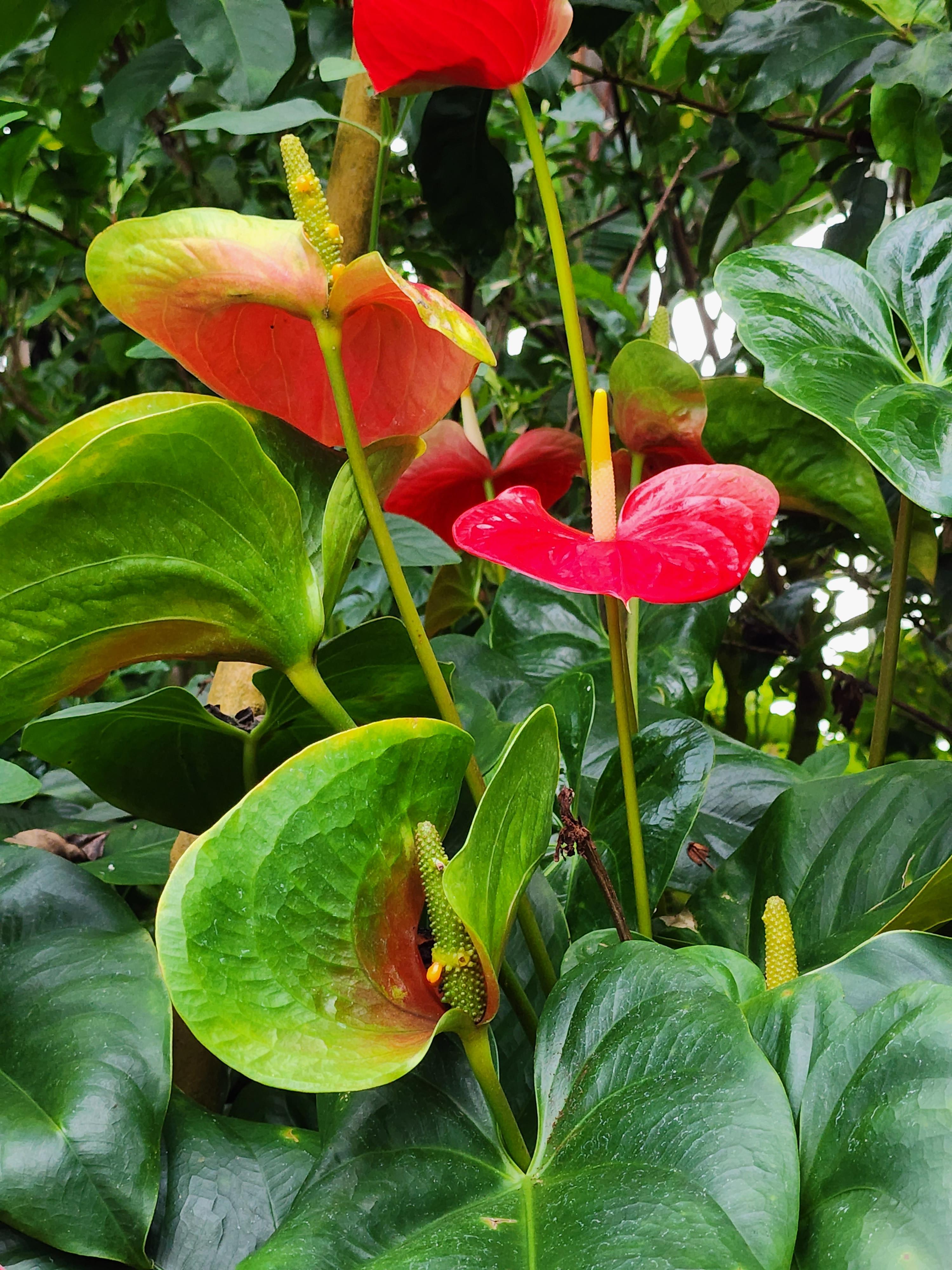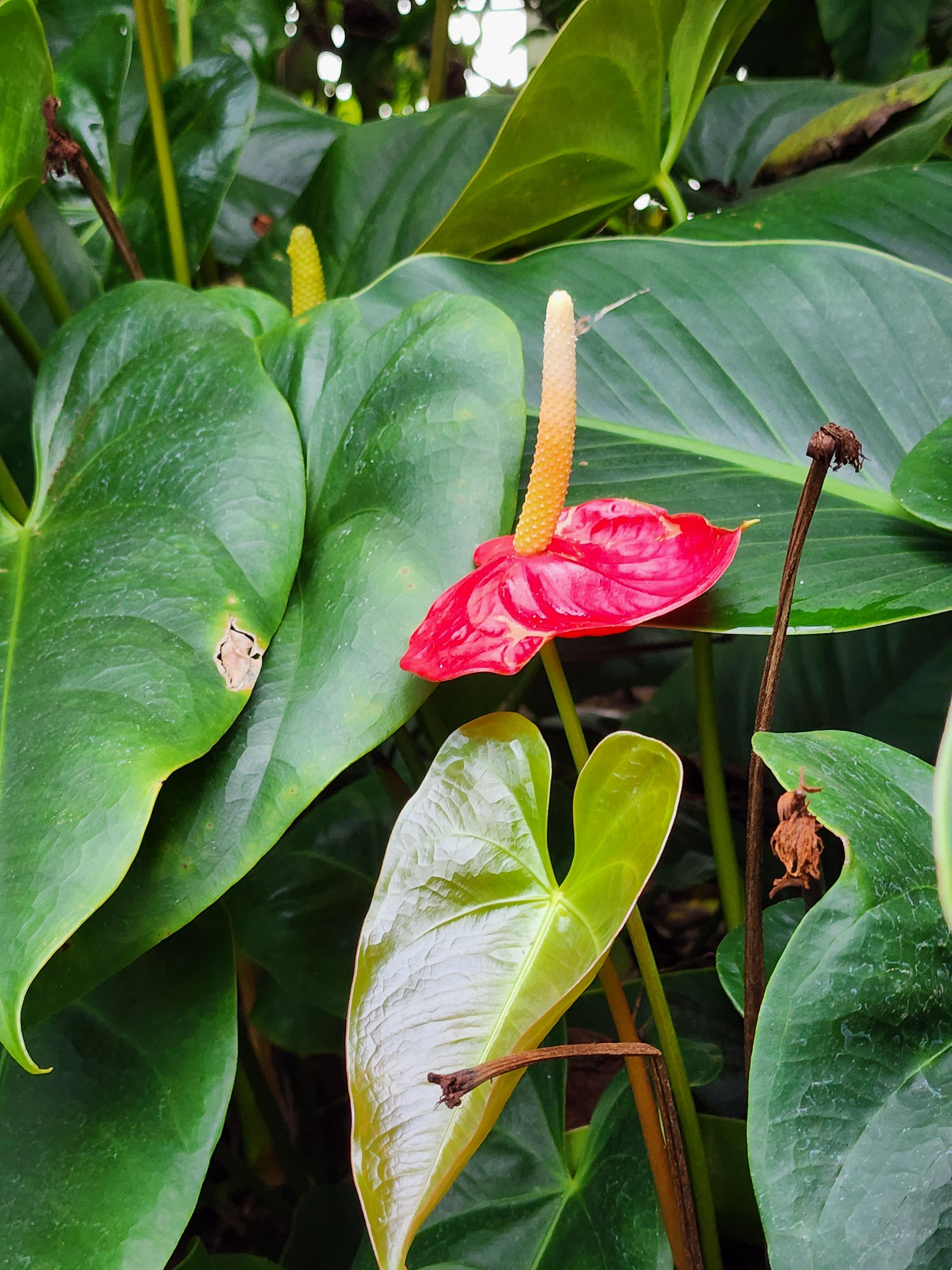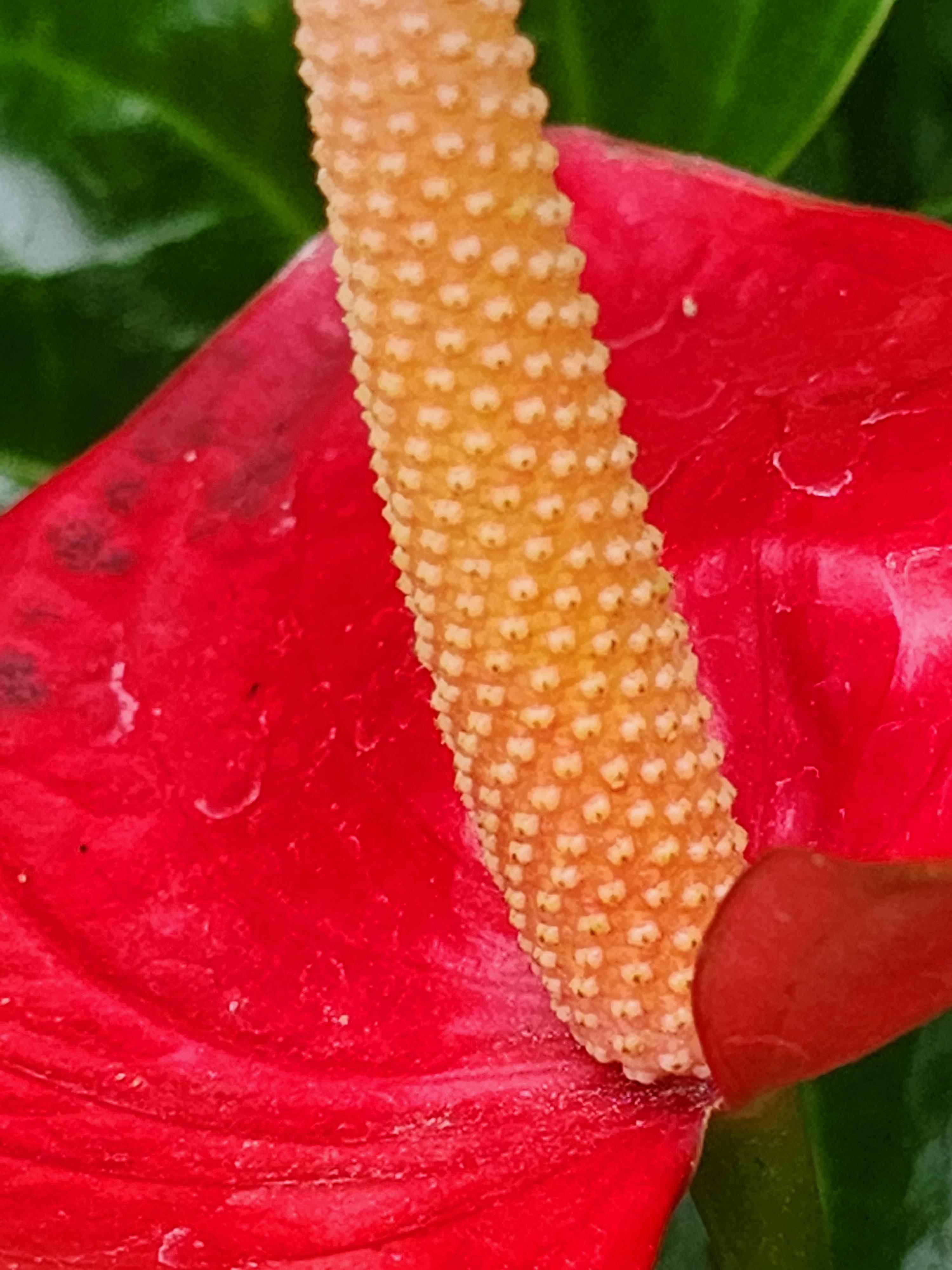학명 : Anthurium andraeanum Linden ex André





아래 : 2024.01.17 한밭수목원






국표식 등재종들
재배식물 정명 Anthurium pedatoradiatum Schott 멕시코안스리움 2011/12/08
재배식물 정명 Anthurium scherzerianum Schott 스케르제르아눔안스리움 2019/04/09
재배식물 정명 Anthurium 'Cochabamba' 안스리움 '코차밤바' 2019/04/02
재배식물 정명 Anthurium crystallinum Linden & André 크리스탈안스리움 2011/12/08
재배식물 정명 Anthurium andraeanum Linden ex André 홍학꽃 2019/04/02
wikipedia 설명
Anthurium andraeanum Linden ex André
Anthurium andraeanum is a flowering plant species in the family Araceae that is native to Colombia and Ecuador.[1] A winner of the Royal Horticultural Society's Award of Garden Merit,[2] it is one of the plants listed in the NASA Clean Air Study[3][4] as effective in removing formaldehyde, xylene, toluene, and ammonia from the air.
Names
Common names for plants in the genus Anthurium include flamingo flower, tailflower, painter's palette, oilcloth flower, and laceleaf.[5][6][7][8] Its name comes from the Greek words anthos, meaning flower, and oura, meaning a tail, referring to the spadix.[9]
Description
It is a monocotyledonous perennial, preferring warm, shady and humid climates, such as tropical rainforests. Its most characteristic feature as an ornamental is its brightly colored spathe leaf, and the protruding inflorescence called the spadix.[10]
It is a short erected plant with whole, cardioid or heart-shaped leaves, generally reflexed, cordate base, apex acuminate or cuspid, which are borne by a cylindrical petiole 30–40 cm long.
The spathe is cartilage-waxy, brightly coloured (red, pink) and 8–15 cm long, excluding the inflorescence (the spadix), which is 7–9 cm long, similar to a candle-holder, white or yellow in colour, is erected, and bears many small hermaphroditic flowers. These include a perianth with four segments and stamens with a compressed mesh. Flowering extends throughout the year.[7]
The fruit is a fleshy berry.[11]
Distribution
Native to Ecuador and southwestern Colombia, it is also naturalised in other parts of the world. It is found in the Caribbean and Réunion. It is grown as an ornamental plant in the form of many hybrids or horticultural varieties. It is commonly used to make bouquets.
Toxicity
The whole plant is toxic. It contains saponins and crystals of calcium oxalate, in fine needles, able to penetrate the mucous membranes and provokes painful irritations. It is toxic to all mammals: a mouth-worn fragment can cause severe irritation of the mouth and throat. Contact with a human causes erythema, blisters, and if ingested, salivation, difficulty in swallowing and vomiting.[12]
Anthurium andraeanum - Wikipedia
안스리움 속에는 다양한 종들이 있다
Anthurium (/ænˈθjuːriəm/;[2] Schott, 1829) is a genus of about 1,000[3][4] species of flowering plants, the largest genus of the arum family, Araceae.[3] General common names include anthurium, tailflower, flamingo flower,[5] and laceleaf.[6][7][8]